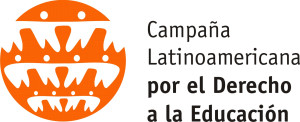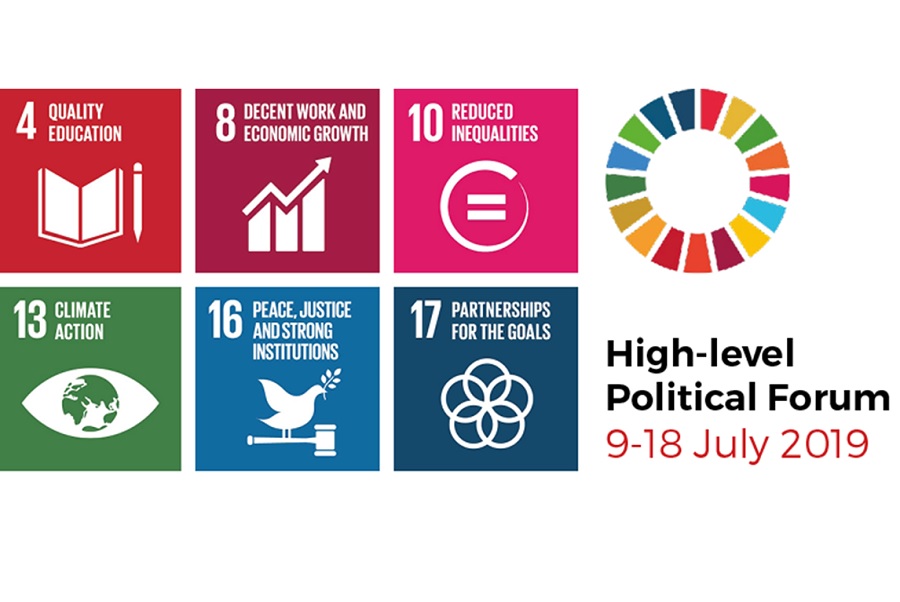
Brazil does not participate at the SDG 4 review in the UN
July 16, 2019In a session to review the status of implementation of the Sustainable Development Goal (SDG) 4, which seeks to ensure inclusive education, with equity and quality, and promote lifelong learning opportunities for all, Brazil has not pronounced.
“Brazil withdrew because it presents setbacks in terms of Human Rights. Our teachers do not have proper conditions to teach, many students do not learn and we have millions of people without access to school or illiterate,” analyzed Daniel Cara, general coordinator of the National Campaign for the Right to Education (CNDE), who follow-up the United Nations High Level Political Forum (UN), a platform for monitoring the SDGs worldwide.
The CNDE integrated the delegation of the Latin American Campaign for the Right to Education (CLADE) in the Forum, and presented a report on the status of SDG 4 in Brazil to the UN Economic and Social Council (ECOSOC) and the Human Rights Council (OHCHR). It also participated in the preparation of collective civil society reports at national, regional and global level, on the SDGs.
The Sustainable Development Goals were adopted by the UN Member States in September 2015, and must be achieved by 2030.
“We are on the eve of completing a third of the period of the agenda and the evaluation is that we have advanced less than necessary to guarantee the human rights which we seek to move forward. In addition, the progress that has been observed remains uneven, and several developing countries have faced political and economic crises that even show setbacks in relation to the commitments assumed at the international level. Unfortunately, Brazil is one of those cases,” said Andressa Pellanda, executive coordinator of the National Campaign.
>> See the full report in Portuguese and English
Read more:
Brasil: In a message to the UN, National Campaign expresses concern about the rights of children and adolescents
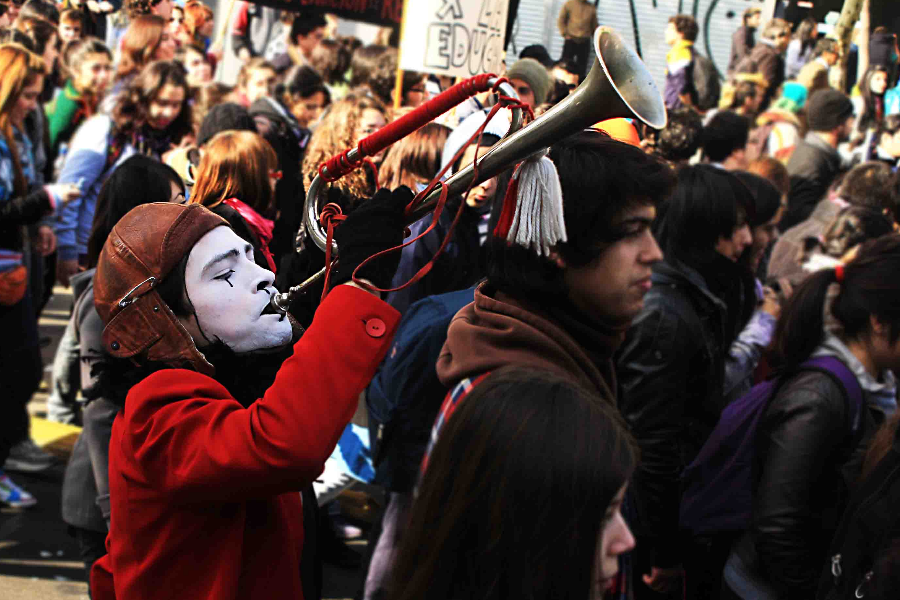
In new publication, CLADE shares experiences, strategies and lessons learned on the fight for the right to education
July 10, 2019The Latin American Campaign for the Right to Education (CLADE) launches the publication “Civil Society Advocacy for the Human Right to Education: Stories and Lessons Learned from Latin America and the Caribbean – Volume 3”.
The document is available:
In this volume, members of CLADE tell their experiences on the fight for the right to education: the challenges, advances and lessons learned, the strategies and recommendations that remain for other civil society movements and organizations. It presents cases of advocacy, communication, research and mobilization in 10 countries of Latin America and the Caribbean, as well as 3 regional experiences, driven by CLADE and 2 regional networks that are members of the Campaign: Espacio sin Fronteras and ALER.
The document is the result of a permanent effort by CLADE, to record and provide visibility to the journey of its members in their advocacy and capacity building efforts; and, on the other hand, to promote the reflection on their success and mistakes, in a process of self-evaluation and capacity building by the network.
“In times when we witness a growing democratic weakness in Latin America and the Caribbean, when laws are passed to hinder the right to demonstration and social participation, when social movements, activists and students are persecuted and criminalized, and there are so many restrictions to participation, it is worth showcasing civil society action and its positive impact on education policies,” says CLADE.
The Campaign distributed the publication, during its participation in the High-Level Political Forum, which takes place until July 18 in New York, with an emphasis on reviewing the status of compliance with Sustainable Development Goal 4, related to education.
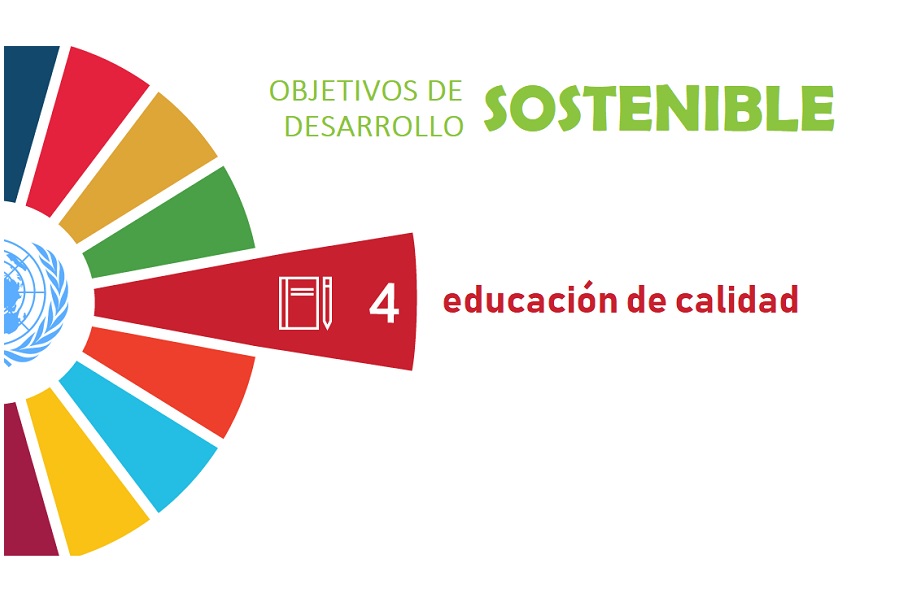
Organizations from Latin America and the Caribbean demand UN to include SDG 4 in the draft of the declaration of the High Level Political Forum
June 5, 2019“It is with great concern that the networks and civil society organizations that work for the realization of the human right to education in Latin America and the Caribbean review the “zero draft” of the Political Declaration of the High Level Political Forum (HLPF) and note the total absence of State commitments in education and the acknowledgement of its crucial importance in the scope of the SDGs, human rights, democratic strengthening and peace”.
These words were presented in a letter signed by the Latin American Campaign for the Right to Education (CLADE) and other networks, coalitions and civil society organizations in Latin America and the Caribbean, which was sent today (6 June) to United Nations authorities, with the purpose of advocacing for the inclusion of references to the SDG 4 in the Political Declaration of the High Level Political Forum.
The FPAN is the official platform for monitoring compliance with the SDGs worldwide, and is carried out within the UN, focusing each year on the monitoring of specific Objectives of the Agenda, as well as the analysis of voluntary national reviews presented by the Member States
The next edition of the Forum will take place from July 9 to 18 of this year in New York, with an emphasis on the revision of SDG 4, as well as Objectives of number 8 (decent work and economic growth), 10 (reduction of inequalities), 13 (action for climate), 16 (peace, justice and solid institutions) and 17 (partnerships to achieve the objectives).
With the letter sent to the UN, organizations and networks demand the inclusion of SDG 4 in the next versions of the declaration. “We hope that this absence will be overcome in the following versions of the Declaration, so that the United Nations can transmit to the whole world, in a clear and forceful way, the importance of education for peace, justice, environmental sustainability, dignity, as well as the overcoming of patriarchy and all forms of discrimination. Education is key to promoting the implementation of the 2030 Development Agenda in its integrity, and we hope this be acknowledged by the High Level Political Forum”, says Camilla Croso, general coordinator of CLADE.
Read the full letter below.
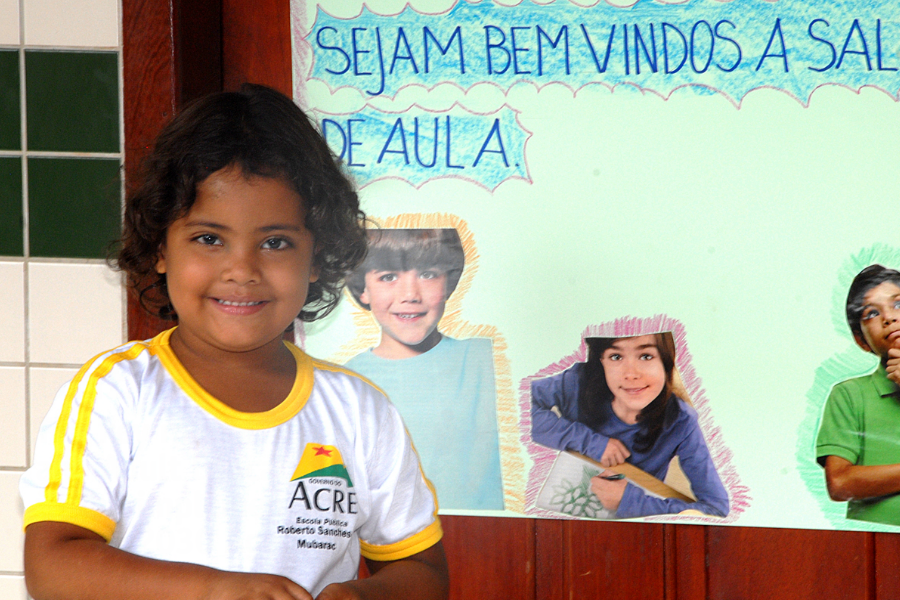
Brazil: Government tries to repeal mechanism that establishes minimum funding needed to ensure quality education
March 28, 2019By calling an extraordinary and secret meeting of the National Education Council for the afternoon of last Tuesday, March 26, the Brazilian government tried to repeal the “CAQ” (Cost student quality) and the “CAQUi” (Initial cost student quality), mechanisms of the National Education Plan that translate into values how much the country should invest per student per year, in each stage of public education, to insure a quality education (more…)
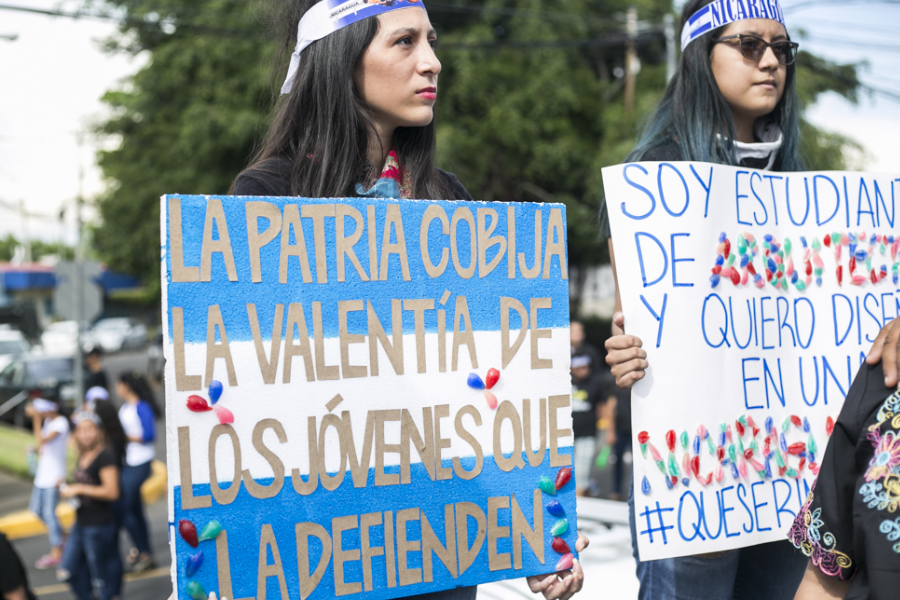
Nicaragua: Forum carries out advocacy actions for education and social participation in partnership with students and youth
February 27, 2019A thematic roundtable on higher education was established within the coalition to strengthen the capacities of young people as leaders of student movements (more…)
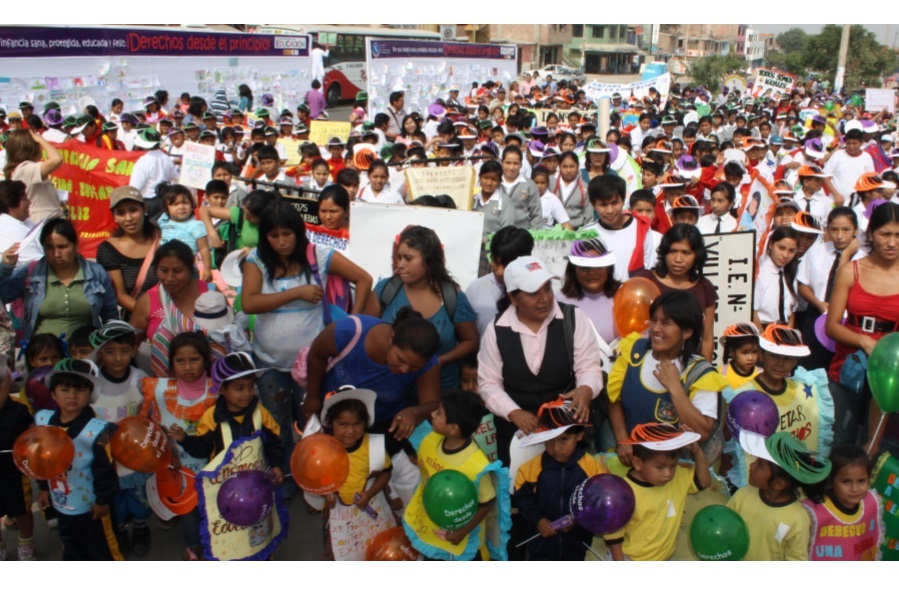
Madeleine Zúñiga: “Great inequality in access and quality is still the challenge of education in Peru”
Advances, challenges and priority actions in the struggle for the right to education in Peru in 2019 are some of the topics that were discussed in an interview with Madeleine Zúñiga, national coordinator of the Peruvian Campaign for Education.
(more…)
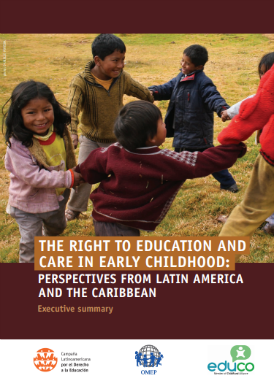
The right to education and care in early childhood: perspectives from Latin America and the Caribbean (Executive Summary)
September 21, 2018The research reveals that, although the General Laws of Education in the region recognize education as a human right and the State as guarantor of its full exercise from early childhood, with different starting points, fragmentation and dispersion of the policies and practices for this educational stage persist, as well as the absence of adequate financing.
Descargar
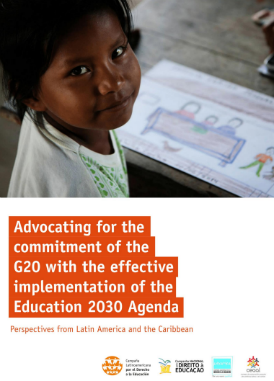
Advocating for the commitment of the G20 with the effective implementation of the Education 2030 Agenda
September 6, 2018CLADE, in partnership with members in countries of the region that are part of the G20, calls on these governments to reaffirm their commitment to ensure sustainable, fair and adequate public funding to strengthen free and inclusive public education systems.
Descargar
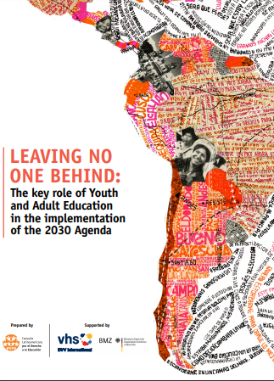
Leaving no one behind: The key role of Youth and Adult Education in the implementation of the 2030 Agenda
July 28, 2018This document precisely sets forth the importance and the impact of a consolidated youth and adult education, with allocated budget and policies, for the promotion of other human rights and fundamental freedoms, and for the full implementation of all Sustainable Development Goals.
Descargar





